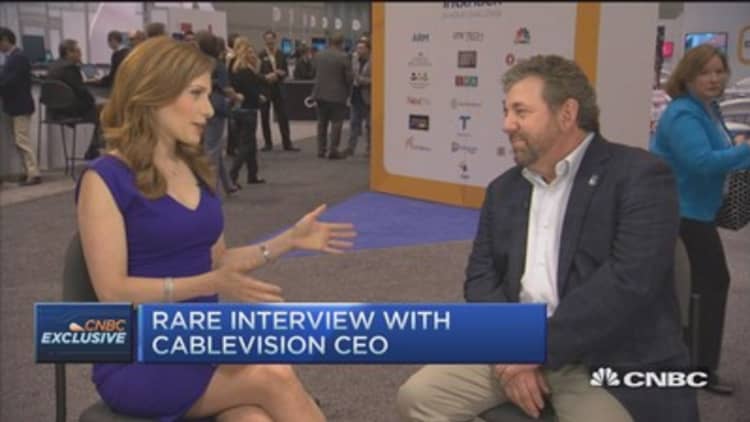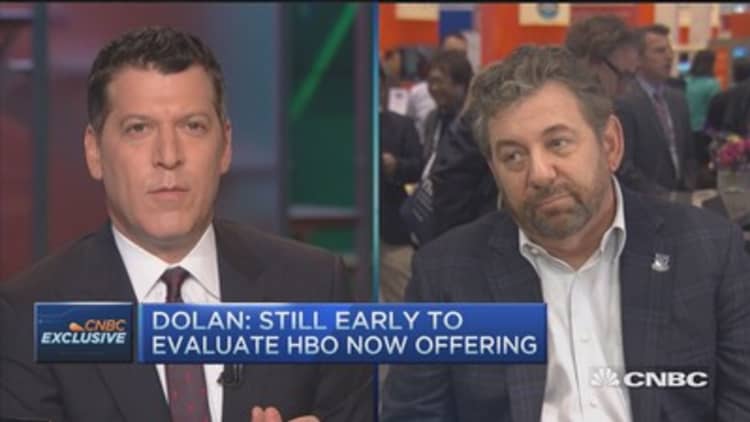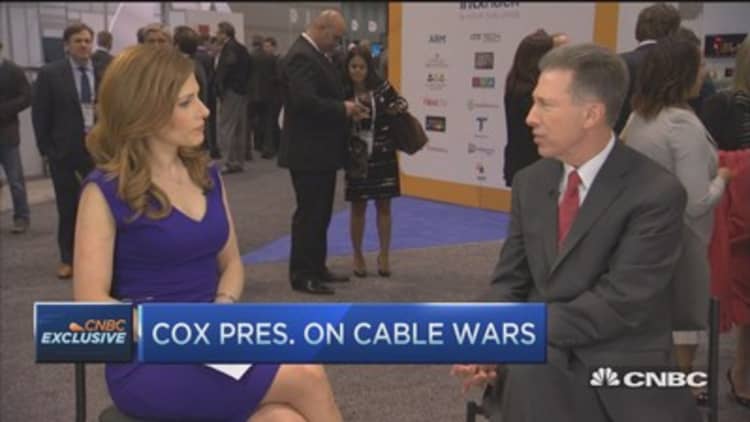


The cable giants didn't mince words at INTX, the Internet and Television Expo in Chicago, as they addressed the big issues they're facing: consolidation, regulation and disruption.
A panel of five cable company CEOs took the stage immediately after FCC Chairman Tom Wheeler's remarks for a panel in which I asked about what's next for the business.
With so many chief executives in one place, and so much talk of consolidation, Cablevision CEO Jim Dolan didn't hesitate to propose a plan: consolidating the New York cable market, taking a different approach than deals between companies with no geographic overlap, like Comcast and Time Warner Cable's.
"If we focused on the markets, I think that would bring more to the consumer, and I think it would make the businesses more valuable," said Dolan in an interview with CNBC following the panel. His overtures for a deal with Time Warner Cable sent Cablevision shares soaring.
Time Warner Cable's Rob Marcus wasn't too receptive, saying that he's focusing on his company right now. He joked, "I'm not sure if I got asked out on a date or to get married." And Cox Communications President Pat Esser added: "I feel like I'm on Match.com. We're all trying to update our relationship status right now."
Read MoreDolan: Still room to consolidate
But joking aside, there was consensus that the benefits of scale are particularly appealing right now. "Scale never hurts," said Esser. "As you think about scale you get synergy." And Charter CEO Tom Rutledge agreed that consolidating makes sense to achieve efficiencies of scale. He was mum though on the state of his negotiations with Time Warner Cable.
"I"m baffled by the chairman's remarks," said Mike Fries, CEO of Liberty Global, speaking more freely because his international cable business isn't regulated by Wheeler. "There's a presumption of guilt and a punishment of success that I have never witnessed before," Fries said of Wheeler's push to regulate cable companies under "Title 2" or as a utility. "It's terrible. I think I need to say what these guys are thinking."
Read MoreBob Iger: Disney doesn't need more of this right now
Cox's Esser echoed Fries' concern, but in a more cautious way. "I feel like we've created this American dream and somewhere we got out of sync with the regulators and we have to find more balance," Esser said. But he cautioned the regulations are already driving costs higher. "At the end of the day the customer pays for that."
One thing everyone agreed on is the idea that they need to evolve to keep up with consumer demand. "What we've missed is the app," said Rutledge. "As we invest in the app, in that experience, I think we solve a big series of issues."
Read More
"We ourselves have given customers more places to view content. As long as I'm in the business of connecting consumers to the content they care about, I'm in the right place."
Cablevision's Dolan talked about the value in selling broadband, and why he's the first to package HBO Now and Hulu with broadband access, "What we know is most important to millennials is connectivity, so we're going to focus on what we know they want most."
Disclosure: Comcast owns NBCUniversal, the parent company of CNBC.


